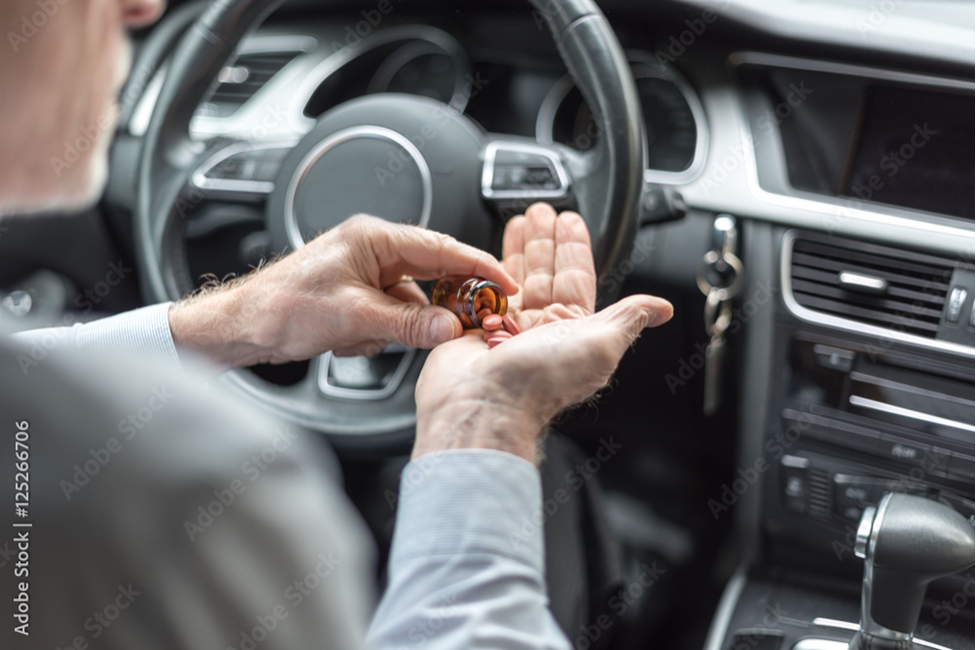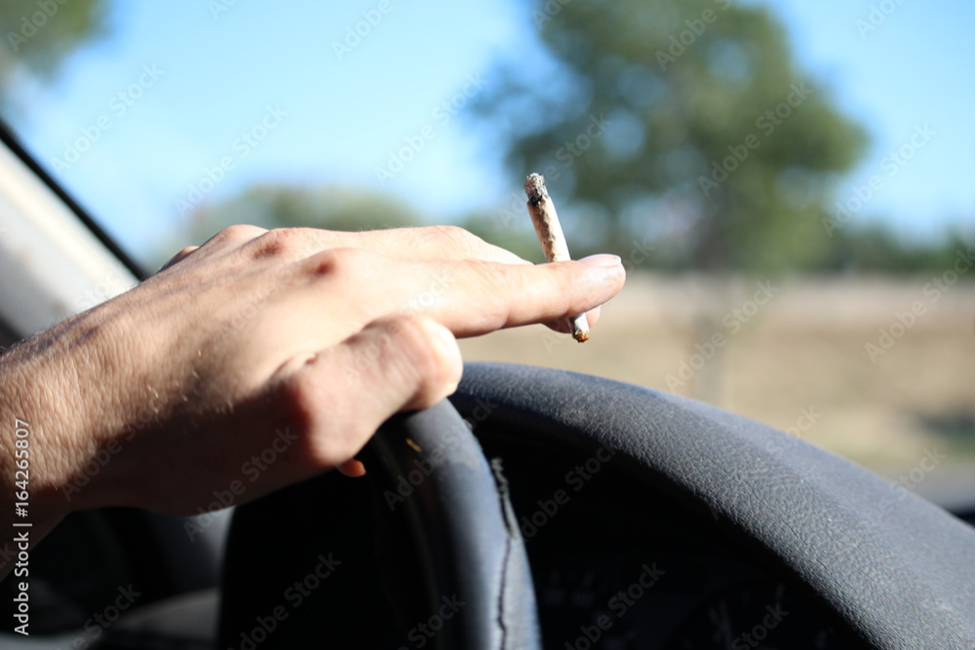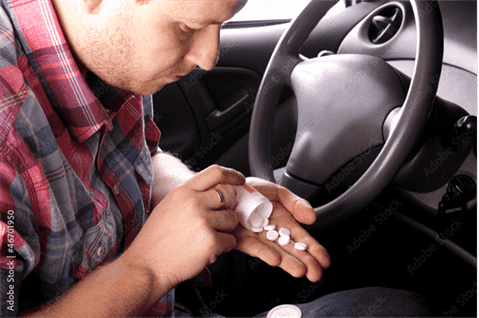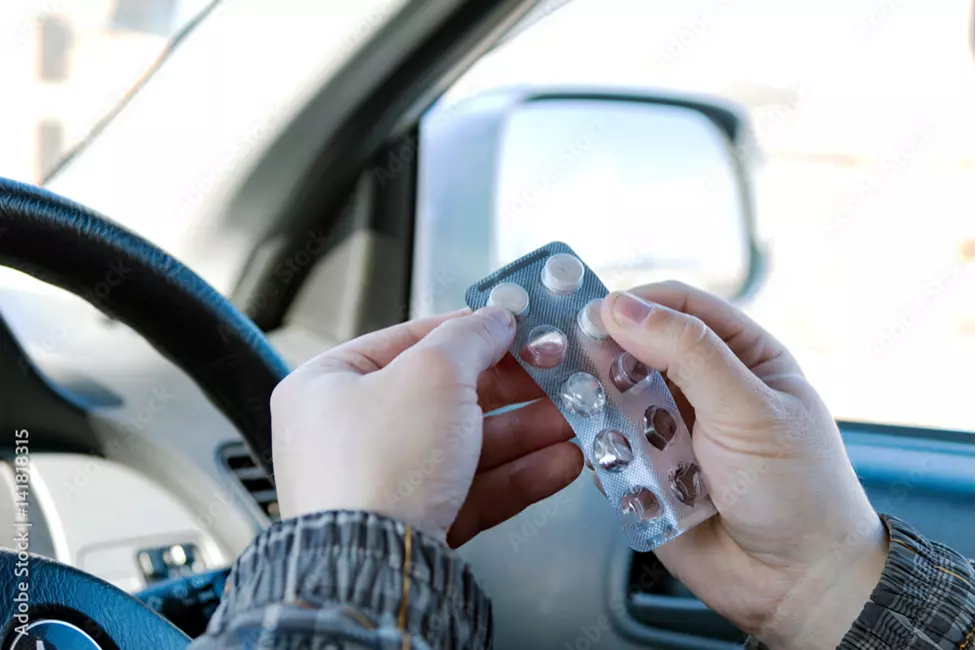When someone has drugs in their system and tries to operate a vehicle, they pose a danger to everyone around them. Drugged driving can cause traumatic car crashes, resulting in severe injuries, some of them fatal. Whether it’s an illegal narcotic or an over-the-counter medicine, a drug can easily impair a motorist’s ability to make good decisions and drive safely on the road.

The North and South Carolina drugged driver accident attorneys at DeMayo Law Offices are highly experienced in drugged driving cases, and they will dedicate themselves to you and your case. Our attorneys have been recognized by numerous prestigious organizations, such as the Multi-Million Dollar Advocates Forum, for successfully advocating for our clients, and we’ll bring that same exceptional representation to your case.
If a driver under the influence of drugs caused your accident and injuries, contact DeMayo Law Offices at (877) 333-1000 to learn more about your legal options and the compensation you’re owed.
The Dangers of Drugged Driving
Without any additional proof, a driver may be charged with and found guilty of drugged driving if an intoxication test reveals that they had more alcohol and drugs in their system than allowed by a state’s per se law while they were driving.
In most states, in addition to criminal charges for DUI or intoxicated driving accidents resulting in injury or death, drugged drivers who cause accidents may be held civilly liable for victims’ injuries or wrongful death. Victims of these accidents can file drugged driving charges against the driver, which could result in monetary fines, license suspension (temporary or permanent), or even prison time.
Driving under the influence of drugs or an impairing substance or with any level of a Schedule I controlled substance is a drugged driving offense under North Carolina Statute 20-138.1.
Drugged driving or drunk driving in South Carolina can result in serious penalties under state DUI and DUAC laws.https://www.findlaw.com/state/south-carolina-law/what-are-the-south-carolina-dui-laws.htmlestablish blood alcohol limits, testing procedures, and penalties for driving after drinking or using drugs.

There are four main types of drugs that can affect a person’s driving abilities:
- Over-the-counter medications
- Controlled substances
- Marijuana
- Prescription medicines
Even a seemingly harmless medication like ibuprofen could create an adverse reaction that leads to a car crash. You should always check the warning labels before operating a motor vehicle.
Over the Counter (OTC) Medications can be just as dangerous as illegal narcotics. Some cause similar side effects in the driver that prevent them from remaining safe on the road. Most people assume if they take an OTC allergy pill, they can go about their day as usual if they take an OTC allergy pill.

Unfortunately, some medications have side effects that could result in a severe car accident. It’s even worse when mixed with other drugs or alcohol.
Examples of common OTC medications that could pose a risk to a person’s driving abilities include:
- Pseudoephedrine
- Allergy medicine
- Decongestant
- Sleep aid
- Pain reliever that contains codeine
Controlled substances are illegal drugs that the user can become addicted to or abuse. There are five controlled substances schedules, or categories, based on their dangers and abuse potential.

Schedule I: High potential for abuse. No accepted medical use. Examples include:
- Ecstasy
- Heroin
- LSD
- Ecstasy
Schedule II: High potential for abuse. Risk of severe physical or psychological dependence. Examples include:
- Morphine
- Dilaudid
- Methamphetamine
- Cocaine
Schedule III: Less potential for abuse than Schedules I and II. High risk of psychological dependence and a moderate to low risk of physical dependence. Examples include:
- Ketamine
- Anabolic steroids
- Tylenol with Codeine
- Vicodin
Schedule IV: Lower potential for abuse than Schedule III. Low risk of psychological and physical dependence. Examples include:
- Ambien
- Xanax
- Valium
- Klonopin
Schedule V: Lower potential for abuse than Schedule IV. Examples include:
- Cough syrup with codeine
- Lomotil
- Lyrica
- Parepectolin
Marijuana is a Schedule I controlled substance, according to the U.S. Drug Enforcement Administration; however, it’s in a category of its own.

Throughout the country, many states have legalized marijuana for recreational and medicinal use, but it’s always illegal to drive with any amount in your system. It can cause side effects that impact the necessary skills to drive safely, such as:
- Slowed reaction time
- Poor coordination
- Memory loss
- Distorted perception
- Blurry vision
- Reduced problem solving and decision-making abilities
- Drowsiness
Prescription medications are pharmaceutical drugs that a doctor prescribes for specific use by the intended individual. It is best to always ask about adverse reactions when you get your medication filled at the pharmacy. Warning labels on the packaging will inform you if you should refrain from driving after taking your usual dose.

Some side effects of prescription drugs are similar to OTC medications and certain controlled substances. They include:
- Blurred vision
- Slowed reaction time
- Nausea
- Drowsiness
- Inability to focus
- Reduced motor skills
- Lack of coordination
Common prescriptions that warn users not to operate a motor vehicle include:
- Antidepressants
- ADHD medication
- Benzodiazepines
- Opioid pain relievers
You’re Entitled to Compensation After a Drugged Driver Car Accident
If you discover that the person who caused your accident was under the influence of drugs, you can hold them financially responsible. Under the state’s fault system, the at-fault party is generally liable for the victim’s injuries, property damage, and other losses. You can pursue compensation by filing a claim with their auto insurance company.

All drivers are legally required to purchase liability insurance with minimum limits of $30,000 for bodily injury and $25,000 for property damage. Those limits cover an injured party’s damages associated with the car crash. Damages refer to all the losses someone incurs due to another person’s negligence. Examples include:
- Lost wages
- Lost earning capacity
- Medical bills
- Out of pocket expenses
- Pain and suffering
- Vehicle repair or replacement costs
- Mental or emotional anguish
- Loss of quality of life
Unfortunately, not everyone follows state laws. If you discover that the drugged driver doesn’t have liability coverage, you can file a claim with your own insurance company. Uninsured/underinsured motorist (UM/UIM) provides compensation to accident victims when the liable driver doesn’t carry liability insurance, or when their limits aren’t high enough.

Like liability auto insurance, UM includes coverage for bodily injury and property damage. You can seek the following damages in a claim:
- Medical bills
- Out of pocket expenses
- Lost wages and earning capacity
- Pain and suffering
- Car repair or replacement costs
The insurance adjuster will add up your expenses and use specific factors to determine a fair value for your intangible losses, such as pain and suffering. Those factors may include:
- Type of injury and its severity
- Length of time to make a full recovery or reach MMI
- Impact on the ability to return to work or complete job-related tasks
- Availability of evidence proving the other driver’s drug impairment
- Total medical expenses incurred
- Development of physical or mental disability after the accident
- If future medical care is necessary
- Effect of the injury on daily routine
Civil Lawsuit Laws in North and South Carolina
Drugged driving is a crime in North Carolina. Anyone caught operating a motor vehicle while impaired by a legal or illegal drug could face a DUI conviction. If you believe filing an insurance claim isn’t enough, you could file a lawsuit against the driver.

You must follow a deadline known as a statute of limitations. The statute for drugged driving accidents is three years. That means you have three years from the crash date to sue the other party for compensation.
In South Carolina, it is against the law to drive while under the influence of drugs or alcohol if doing so significantly and substantially impairs one’s ability to drive.
Many cases involving drugged driving will involve the legal theory of negligence. Under this theory, motorists owe others a duty of care to act or not act in a way that prevents harm. When they fail to comply with that duty, it’s a form of negligence. If you want to establish that the drugged driver was negligent in their actions, you must prove the following elements:
- Duty: They owed you a duty of care;
- Breach: They breached their duty;
- Cause in fact: If it weren’t for the actions, you wouldn’t have sustained an injury;
- Proximate cause: Your injury was the direct result of their breach; and
- Damages: You incurred damages from the accident.
In a lawsuit, you can pursue compensation for your damages, such as medical costs and emotional trauma. However, another type of damage available is punitive damages. Instead of compensating the injured victim, it’s a punishment against the liable party. You’re only entitled to punitive damages if you provide clear and convincing evidence that the other driver acted maliciously, fraudulently, or willfully.
Pursuing Compensation in a Wrongful Death Case
If a drugged driver caused the death of your loved one, you could sue them for damages. North Carolina laws allow a civil lawsuit even if there’s a pending criminal case against the other driver for the car crash.
The statute of limitations is slightly shorter than lawsuits for car accident injuries. To file a wrongful death lawsuit, you only have two years from the date your loved one passed away.
Only a handful of people that are allowed to pursue a wrongful death case. First in line is the personal representative of the deceased’s estate. They must represent the interests of the estate and surviving family members. If, for some reason, the named representative can’t or won’t serve, or there isn’t an estate plan, the court will appoint someone else. Typically, it’s a surviving spouse, parent, or adult child.
The available damages may include:
- Lost income
- Medical expenses associated with the victim’s fatal injury
- Pain and suffering endured before death
- Funeral and burial costs
- Loss of companionship, guidance, care, and other services provided to the family by the deceased
- Punitive damages
Contact a North and South Carolina Drugged Driver Accident Law Firm
At DeMayo Law Offices, Your North Carolina Law Firm™, we understand the devastating effects of a car accident. We have the resources and experience to hold people accountable for their careless actions. When you hire our drugged driving attorneys, we’ll fight assertively for the justice and compensation you deserve.
Our team is available 24/7. You can depend on us to be there for you when you need us. We care about the clients we work with and always make them a priority. We’ll provide the legal support and guidance you need during this overwhelming experience.
If you were the victim of a drugged driver car accident in North or South Carolina, call (877) 333-1000 to learn more about how we can help you.
